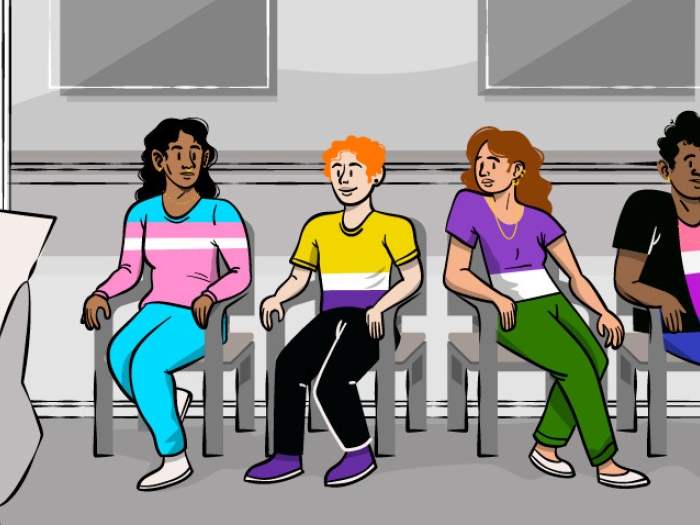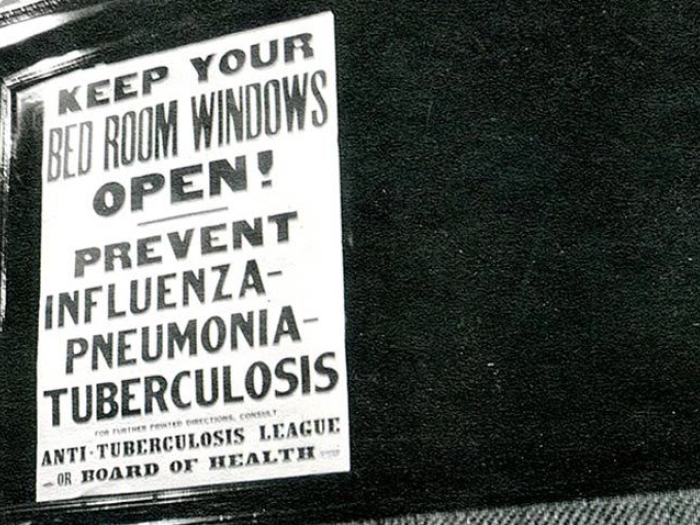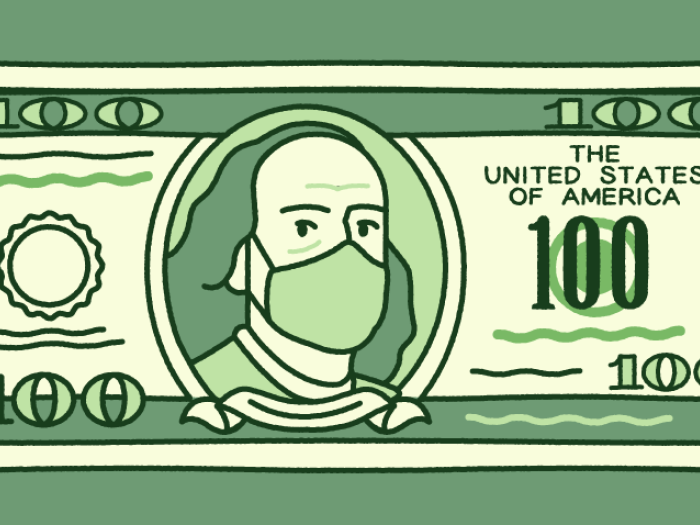Schooling children in the basics of medical insurance and preventive care could benefit their long-term health, U-M researchers say.
7:00 AM
Author |

Most adolescents learn about exercise, nutrition, substance abuse and sexual health as part of their school curriculums.
Beyond those standards, one clinician says, they ought to learn health literacy — with topics that include preventive care, public policy and health insurance terminology such as deductibles and cost-sharing.
MORE FROM THE LAB: Sign up for our weekly newsletter
All tailored to a student's age and comprehension level, of course.
"You start on a basic level and can easily build on that foundation," says Tyler Winkelman, M.D., a clinical lecturer in pediatrics and communicable diseases at University of Michigan C.S. Mott Children's Hospital.
It might be the lone chance to teach these concepts, which are crucial to navigating the health care system.
Only 12 percent of adults in the United States have proficient health literacy, according to a 2003 nationwide survey. That figure alone should spark change, Winkelman and colleagues say in a paper in the journal Pediatrics.
Health lessons, they believe, could begin as soon as elementary school.
"A young student could start to understand why they need vaccines — not just from getting pulled into a clinic by their parents for a shot. And in a high school biology class, you can teach how vaccines work," says Winkelman, also a Robert Wood Johnson Foundation Clinical Scholar, a Veterans Affairs Ann Arbor Healthcare System internist and a member of the Institute for Healthcare Policy and Innovation.
The ultimate goal: helping young people one day make informed decisions about self-care, choosing a suitable health plan and, when needed, finding appropriate medical treatment.
He spoke more about the idea and possible means of implementation.
In the context of this paper and initiative, how is "health literacy" defined?
Winkelman: It's the set of skills you need to effectively function in the health care system, understanding health insurance and the different components that it covers.
It also is about knowing the drivers of health — including factors beyond your individual control, such as environmental regulation — and what measures you can take. Aside from lowering high-risk behavior, that means knowing where to go when you have a medical problem and how to determine the severity of your problem.
Why should kids learn about health care?
Winkelman: When you start your first job as an adult, the human resources person hands you a book and says, "Pick your health insurance." It's arguably one of the most important decisions of your life, and no one has taught you a single thing about how to do that.
SEE ALSO: Training the Brains That Explore the Brain
We think it would be effective for young adults to begin to wrap their head around these concepts so they're prepared — to know the difference between copays, coinsurance, premiums and deductibles … and how services are covered under a preferred network, in-network and out-of-network option. And they increasingly will need to understand health savings accounts and flexible spending accounts.
Our hope, then, is that they would know how to select a health insurance plan and also seek appropriate care that improves their outcomes and reduces reliance on high-cost unnecessary services.
What do you attribute to so few "literate" adults — and why is that dangerous?
Winkelman: I think that it's low because we have very little health [literacy] education in the U.S. We talk about individual behaviors, but they aren't the whole picture. It's about recognizing how your health fits into the context of broader systems — the neighborhood you live in, your proximity to a grocery store, the water that comes out of your pipes.
We also have a very complicated health care system.
Prior research is fairly clear that [poor] health literacy is associated with worse outcomes, higher health care costs and even elevated mortality rates. We believe that improving health literacy would have a tremendous effect on all of those things and may explain some of the costs and the quality gaps that we see between the United States and other countries.
You say these topics shouldn't be relegated to health class. Where else are they appropriate?
Winkelman: Health care touches on all aspects of education and life, so this could be integrated into existing curriculum in all sorts of subjects. That would probably be a simpler approach than carving out a whole new class. There is potential for some very interesting collaborations.
SEE ALSO: Program Connects Detroit High Schoolers with U-M Med Students
A government class, for instance, would be an excellent place to explain how legislation is passed that determines health care delivery in the United States. That could be a time when the Affordable Care Act is discussed and how that expanded coverage and the populations that it affects. You also could touch on how one signs up for health insurance.
How do you make this shift happen?
Winkelman: One of the things we suggest is mandating some existing curricular standards to ensure that students are exposed to these health education topics. It's going to require cooperation among educators, clinicians and policymakers to move this forward at both the state and federal level.
A concept that we throw out is the idea that health insurers — government health insurers, in particular — should pay for health literacy programming within public schools … services that could potentially be wrapped into Medicaid managed care plans and go to the beneficiaries' schools to help support those efforts.

Explore a variety of health care news & stories by visiting the Health Lab home page for more articles.

Department of Communication at Michigan Medicine
Want top health & research news weekly? Sign up for Health Lab’s newsletters today!





